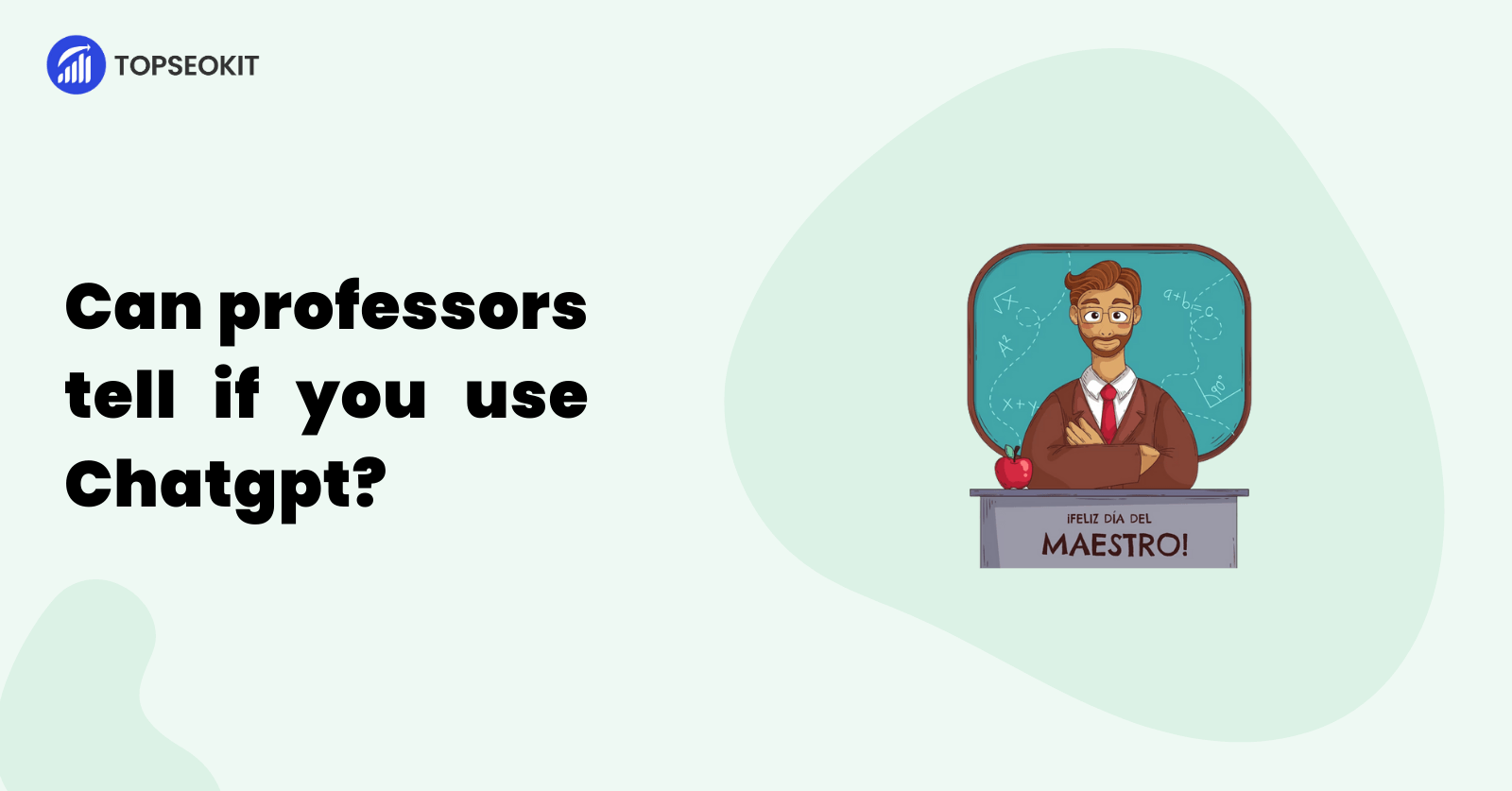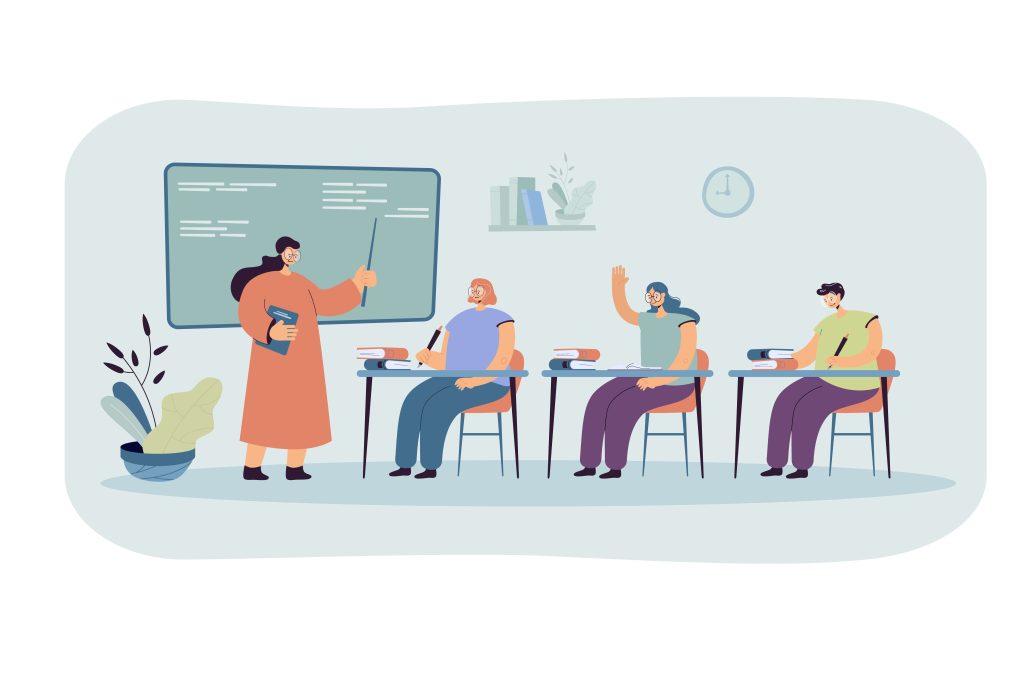
Can professors tell if you use Chatgpt?
Unveiling the secret: Can professors really identify ChatGPT usage in students’ assignments, and what measures can be taken to ensure responsible use of AI technology in academia?
Table of Content
- Understanding Chatgpt
- The Role of Professors in Detecting ChatGPT Use
- Telltale Signs of ChatGPT Use
- The Consequences of Using ChatGPT in Academia
- Strategies for Maintaining Academic Integrity
- Ethical Use of AI and ChatGPT in Education
- Final thoughts
- FAQs
As you navigate the world of academia, you may have come across Chatgpt.
This powerful AI language model has gained popularity for its ability to generate human-like text.
While it can be tempting to use such a tool to make your academic life more accessible, it’s crucial to understand the importance of academic integrity and the potential consequences of using ChatGPT in your assignments.
In this blog post, we’ll explore ChatGPT, how it works, and whether professors can detect its use in your work.
1. Understanding ChatGPT
What is ChatGPT?
ChatGPT, developed by OpenAI, is an advanced language model that uses machine learning and artificial intelligence to generate coherent and contextually relevant text.
Since its inception, it has evolved through multiple iterations, with each version becoming more sophisticated and capable.
ChatGPT has a wide range of applications, from content creation and customer support to language translation and even aiding in academic research.
However, its use in academic assignments raises questions about academic integrity and the ethical implications of AI-generated content.
How ChatGPT Works
To understand how ChatGPT can generate human-like text, let’s delve into the technology behind it:
- Natural Language Processing (NLP): NLP is a subfield of AI that focuses on enabling computers to understand, interpret, and generate human language. By analyzing patterns in language data, NLP algorithms can learn to recognize context, grammar, and semantics, allowing them to create coherent and contextually relevant text.
- Machine Learning and AI Algorithms: ChatGPT is built on a foundation of machine learning algorithms that enable it to learn from vast amounts of text data. By training on diverse sources, such as books, articles, and websites, Chatgpt can generate text that closely resembles human writing.
2. The Role of Professors in Detecting ChatGPT Use

Professors’ Expertise in Their Subject Matter
Professors deeply understand the subject matter they teach as experts in their respective fields.
This expertise allows them to recognize when a piece of writing deviates from the expected level of knowledge or understanding for a particular assignment.
Suppose your work contains information or insights that seem beyond the scope of the course. In that case, it may raise suspicions about using ChatGPT or other AI-generated content.
Familiarity with Students’ Writing Styles and Abilities
Over time, professors become familiar with their students’ writing styles and abilities.
They can often recognize when a piece of writing doesn’t align with a student’s typical work.
Suppose your writing suddenly becomes more polished, complex, or sophisticated than usual.
In that case, it may prompt your professor to investigate further and uncover the use of ChatGPT.
Use of Plagiarism Detection Tools
While Chatgpt-generated content may not necessarily be plagiarized, professors often use plagiarism detection tools to ensure academic integrity.
These tools can also help identify unusual patterns or similarities in writing that may indicate using AI-generated content.
By comparing your work to a vast database of sources, these tools can flag potential issues that warrant further investigation.
3. Telltale Signs of ChatGPT Use
Inconsistencies in Writing Style
One of the most apparent signs of ChatGPT use is inconsistency in writing style.
Suppose your work contains sections that differ significantly in tone, vocabulary, or sentence structure.
In that case, it may indicate that an AI-generated some parts. For example, if your writing typically features short, simple sentences and suddenly shifts to long, complex ones, it could raise suspicions.
Overly Complex or Technical Language
ChatGPT is designed to generate text that closely resembles human writing.
However, it can sometimes produce overly complex or technical language that may need to be revised for your assignment.
If your work contains jargon or advanced terminology that seems out of place or unnecessary, it could be a sign that you’ve used ChatGPT to generate some or all of your content.
Lack of Personal Voice or Perspective
One of the critical aspects of academic writing is the expression of your unique voice and perspective.
AI-generated content, like that produced by ChatGPT, may lack the personal touch that comes from human authorship.
If your work seems impersonal or needs a clear point of view, it may raise questions about its authenticity.
Mismatch Between Assignment Requirements and Content
Finally, a mismatch between the assignment requirements and the content of your work could indicate the use of ChatGPT.
Suppose your submission needs to fully address the assignment’s objectives or strays from the topic.
In that case, it may suggest you’ve relied on AI-generated content rather than engaging with the material and developing your ideas.
4. The Consequences of Using ChatGPT in Academia
Academic Penalties
Using ChatGPT or other AI-generated content in your academic work can lead to severe consequences.
If caught, you may face penalties such as a failing grade on the assignment, a lower course grade, or even expulsion from your academic program.
Prioritizing academic integrity and avoiding using AI-generated content in your projects is crucial.
Damage to Reputation and Credibility
Beyond the immediate academic penalties, using Chatgpt can damage your reputation and credibility as a student and future professional.
Academic dishonesty can follow you throughout your academic and professional career, making it difficult to gain the trust of professors, employers, and colleagues.
Loss of Learning Opportunities
Relying on ChatGPT to complete your assignments robs you of valuable learning opportunities.
You need to engage with the material and develop your ideas to improve your critical thinking skills and grow as a student and professional.
5. Strategies for Maintaining Academic Integrity

Maintaining academic integrity is essential for your student and future professional success.
Here are some strategies to help you avoid the pitfalls of using AI-generated conten like ChatGPT:
Developing Strong Research and Writing Skills
Invest time and effort in honing your research and writing skills.
By becoming a proficient writer and researcher, you’ll be better equipped to tackle assignments without resorting to AI-generated content.
Practice makes perfect, so take advantage of every opportunity to improve your skills.
Proper Citation and Referencing
Ensure that you properly cite and reference all sources used in your work.
It not only demonstrates academic integrity but also helps you avoid unintentional plagiarism.
Please familiarize yourself with the citation style required by your institution and adhere to it consistently.
Seeking Help from Professors, Tutors, or Peers
If you’re struggling with an assignment, feel free to seek help from your professors, tutors, or peers.
They can provide valuable guidance, feedback, and support to help you complete your work without using AI-generated content.
Remember, it’s better to ask for help than to compromise your academic integrity.
Utilizing Academic Resources and Support Services
Take advantage of the academic resources and support services available at your institution.
These may include writing centers, libraries, and online resources to help you develop your research and writing skills.
By leveraging these resources, you’ll be better prepared to tackle assignments and maintain academic integrity.
6. Ethical Use of AI and ChatGPT in Education
The Potential Benefits of AI in Education
While this blog post has focused on the potential pitfalls of using AI-generated content like ChatGPT, it’s essential to recognize the potential benefits of AI in education.
When used responsibly, AI can enhance learning experiences, personalize instruction, and provide valuable insights for educators.
For example, AI can help identify learning gaps, recommend resources tailored to individual needs, and even automate administrative tasks, freeing up time for educators to focus on teaching.
Guidelines for Responsible AI Use
To harness the benefits of AI in education while maintaining academic integrity, academic institutions must ensure that appropriate measures are taken.
Some fundamental principles include:
- Use AI as a supplementary tool, not a replacement for your work.
- Always credit AI-generated content when used in your career.
- Be transparent about your use of AI with your professors and peers.
By adhering to these guidelines, you can ensure that you’re using AI ethically and responsibly in your academic pursuits.
Balancing Technology and Human Input in Learning
Balancing technology and human input is the key to successfully integrating AI into education.
While AI can provide valuable support and insights, it’s essential to remember that it’s not a substitute for human creativity, critical thinking, and personal growth.
Using AI to enhance your learning experience rather than relying on it to complete your assignments, you can maintain academic integrity and maximize your education.
7. Final thoughts
In conclusion, while ChatGPT and other AI-generated content can be tempting to use in your academic work, it’s crucial to prioritize academic integrity and ethical AI use.
By developing vital research and writing skills, seeking help when needed, and using AI responsibly, you can avoid the potential consequences of using AI-generated content in your assignments.
We encourage you to engage in open dialogue with your professors and peers about the role of AI in education and how to use it ethically.
We can ensure that technology by fostering a culture of academic integrity and responsible AI use.
8. FAQs
How do I know if students use ChatGPT?
To determine if students use ChatGPT, look for signs such as highly detailed and well-structured responses, consistent writing style, and a lack of personal narratives or opinions that may indicate AI-generated content.
Can ChatGPT code be detected?
ChatGPT code cannot be directly detected in text, but analyzing writing patterns, vocabulary, and sentence structure may help identify AI-generated content.
Can you get caught using ChatGPT?
Getting caught using ChatGPT depends on the reader’s context and ability to recognize AI-generated content.
Awareness and vigilance are key to identifying such content.
Can Google Docs detect ChatGPT?
Google Docs do not have a built-in feature to specifically detect ChatGPT-generated text.
Still, it may be possible to identify AI-generated content through manual analysis or third-party tools.
Let’s dive in! Get started for free
